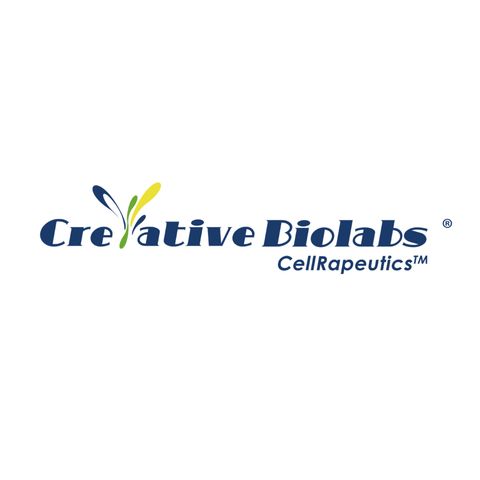
-
tumor cell lysis
27 APR 2019 · The target tumor cells are labeled with specific fluorescent cytoplasmic reagent, the live cells can be imaged and monitored at real-time level to measure the tumor cell lysis. The reagent is safe for cells at optimized concentration, and fluorescence measurements can be accurately performed for short-term experiments, as the reagent will be diluted with cell proliferation. In addition, the ratio of target tumor cells and CAR-T cells can be optimized in the assay. https://www.creative-biolabs.com/car-t/t-cell-mediated-tumor-cell-lysis-assay.htm27s -
TCR
27 APR 2019 · Altering the specificity of T cell receptor (TCR) is one of the popular strategies to genetically modify T cells to enhance the tumor-killing activity of T cells. From a tumor-reactive T cell or active anti-tumor T-cell antigens, the appropriate target sequence is introduced to modify T cells to target a broad range of tumors with improved specificity. https://www.creative-biolabs.com/car-t/cellrapeutics-tcr-technology.htm22s -
T Cell Isolation
27 APR 2019 · In patient's T Cell Isolation, flow cytometry analysis of isolated blood products ensures that a sufficient number of healthy and functional T cells being used for processing and re-infusion. https://www.creative-biolabs.com/car-t/flow-cytometry-application-in-car-t-system.htm10s -
T cell infiltration
27 APR 2019 · T cell infiltration, accumulation, and survival of chimeric antigen receptor T (CAR-T) cells in solid tumors are crucial for tumor clearance. T cell infiltration assays ensure the functional T cells are located in tumor microenvironment to display humoral or cellular immunity both in vitro and in vivo. https://www.creative-biolabs.com/car-t/enhancement-or-inhibition-of-t-cell-response-assays.htm19s -
in vivo animal testing
27 APR 2019 · CAR-T cell preclinical in vivo animal testing performed in xenograft murine models derived by well-defined cell lines or primary human tumor cells. Immunodeficient mice, lacking of effective innate immunity for the absence of B cells, T cells, or NK cells, are the optimal animal models for engraftment of tumor cells and evaluation of CAR-T cells. https://www.creative-biolabs.com/car-t/car-t-preclinical-in-vivo-assay.htm22s -
Electroporation transfer
27 APR 2019 · Electroporation transfer is emerged as a powerful tool for the genetic modification of diverse cell types based on the transient disruption of cell membrane via exposure to an electric field, which allows charged molecules to enter the cell. For instance, the square-wave pulse-based new electroporation devices, such as Lonza Nucleofector II electroporation system, manifests a high efficiency in the genetic modification of T cells with proprietary electroporation buffers and electric parameters. https://www.creative-biolabs.com/car-t/gene-packaging-delivery.htm30s -
chimeric antigen receptor t cell therapy
27 APR 2019 · Notably, several CAR-T libraries have been generated not only for blood cancer antigen CD19, but also for solid tumors against different antigens, such as Her2, Her3, EGFR, FGFR1, VEGFR, etc. The selected stable clones can be used in clinic trials immediately, thus making this technology more powerful and attractive in chimeric antigen receptor t cell therapy. https://www.creative-biolabs.com/car-t/cellrapeutics-chimeric-antigen-receptor-car-technology.htm27s -
CAR T target
27 APR 2019 · In a narrow sense of cancer biomarker, it is limited to proteins the most used to challenge in the clinical applications, especially in the CAR-T therapy. Specifically, a cancer biomarker of the CAR-T provides the most prominent signal of cancer cells for distinguishing from normal cells and the most effective CAR T target for immune recognition and destruction. https://www.creative-biolabs.com/car-t/biomarker-identification-selection.htm21s -
T Cell Phagocytosis
1 MAR 2019 · In general, the T cell phagocytosis assay can be divided into two categories, in vivo and in vitro. Both of them are always based on fluorescence. In vivo assay has advantages to be more useful and credible, while in vitro phagocytosis assay could give insights during an early stage in a very short timeline. https://www.creative-biolabs.com/car-t/cellrapeutics-phagocytosis-assay.htm22s -
chimeric antigen receptor t-cells
1 MAR 2019 · The typical structure of a CAR molecule includes a single chain variable fragment (scFv), a spacer, a transmembrane domain (TM) and an intracellular signaling domain. The scFv is derived from monoclonal antibody (mAb), which can specifically recognize the target protein on tumor surface and subsequently transduct activation signal into chimeric antigen receptor t-cells. https://www.creative-biolabs.com/car-t/cellrapeutics-chimeric-antigen-receptor-car-technology.htm27s
Copyright 2024 - Spreaker Inc. an iHeartMedia Company
